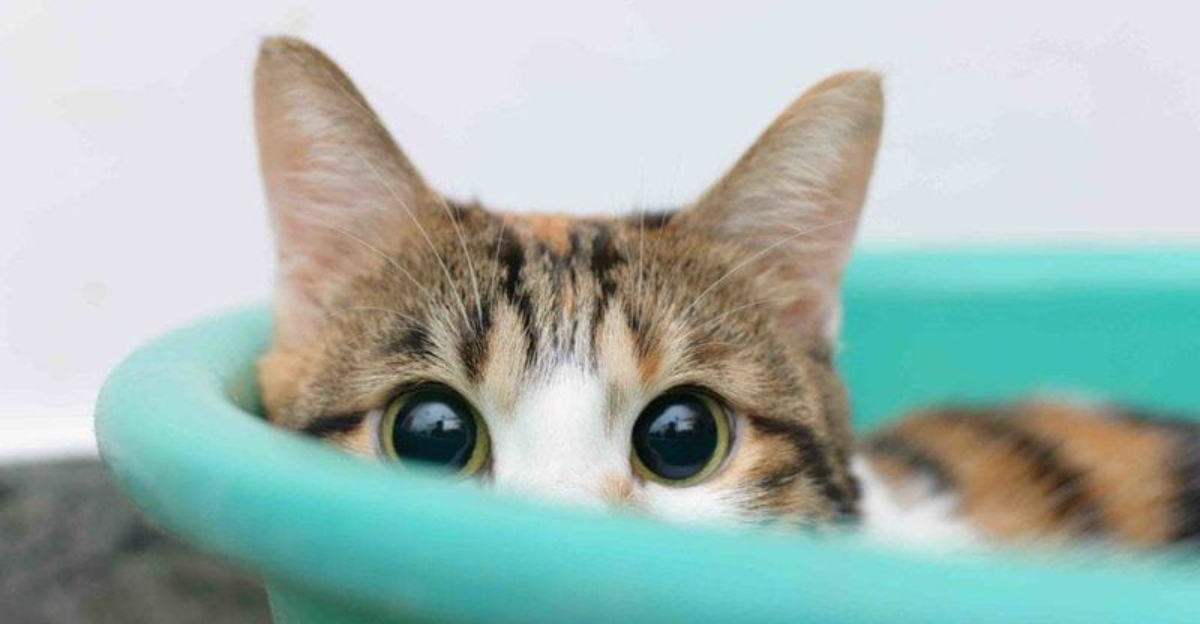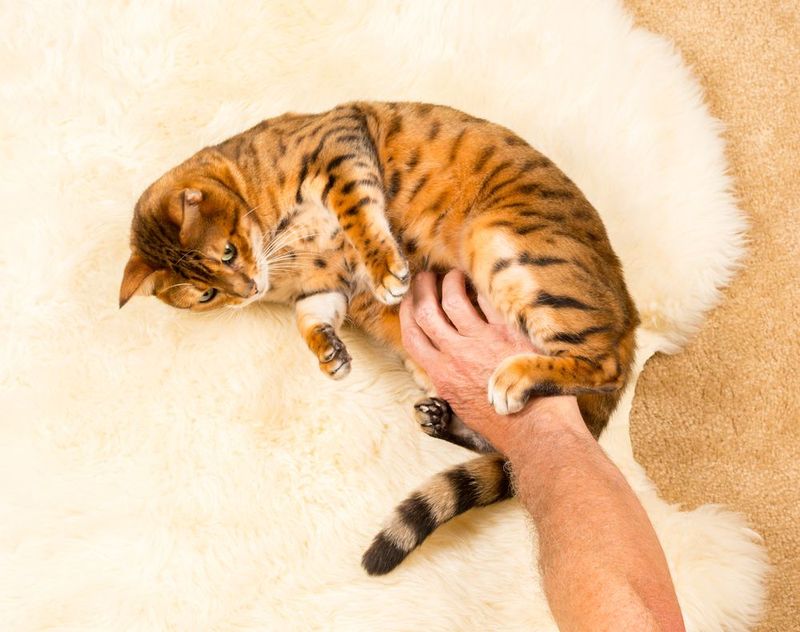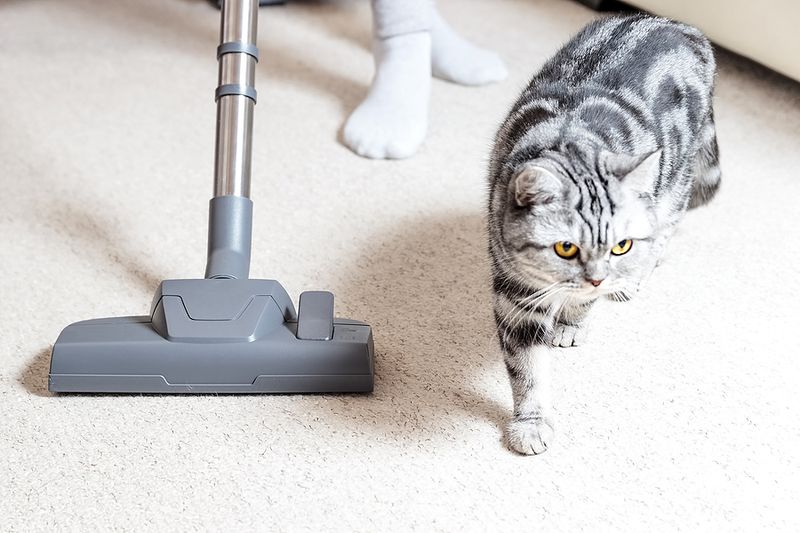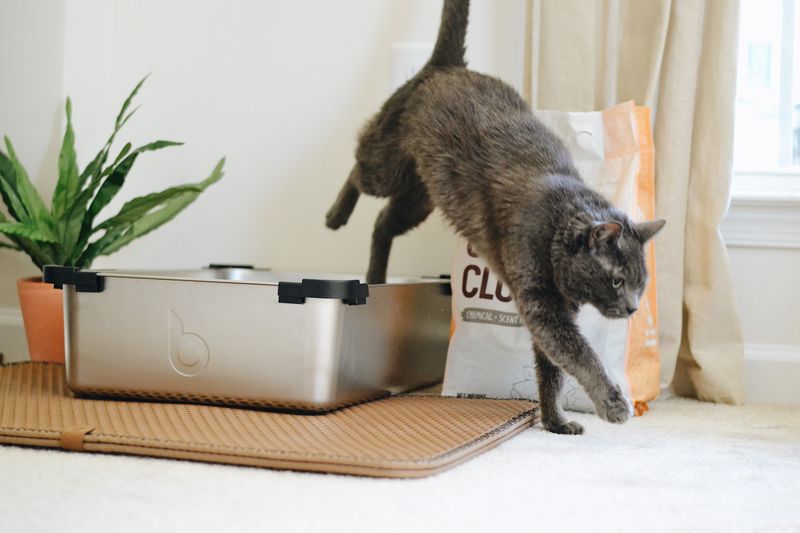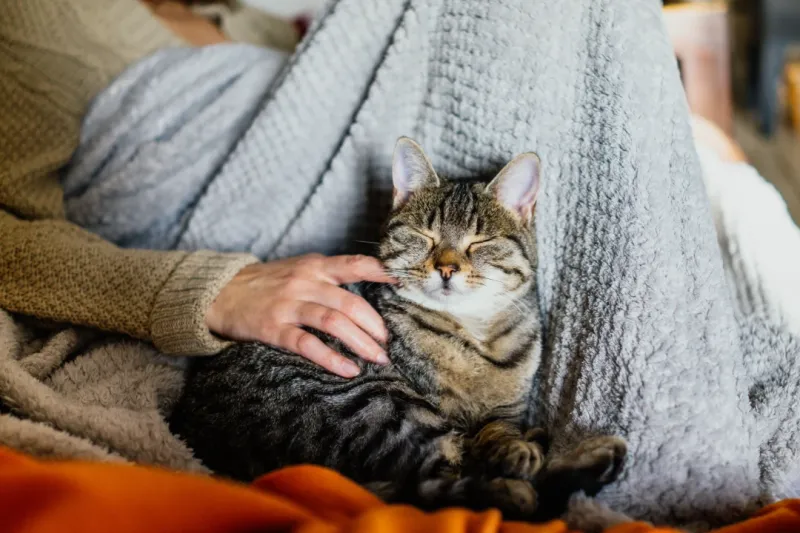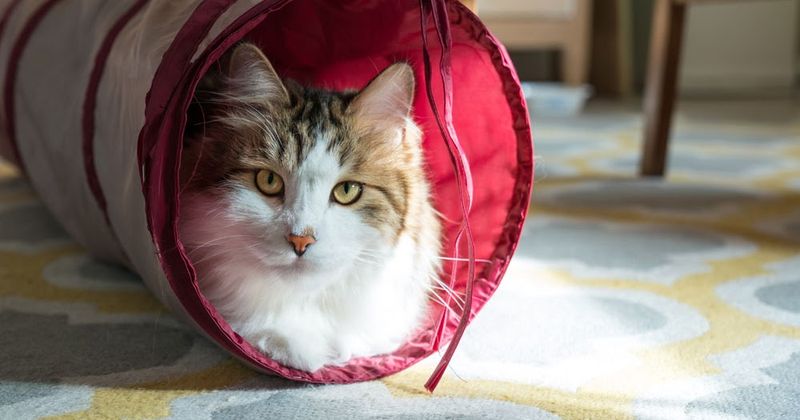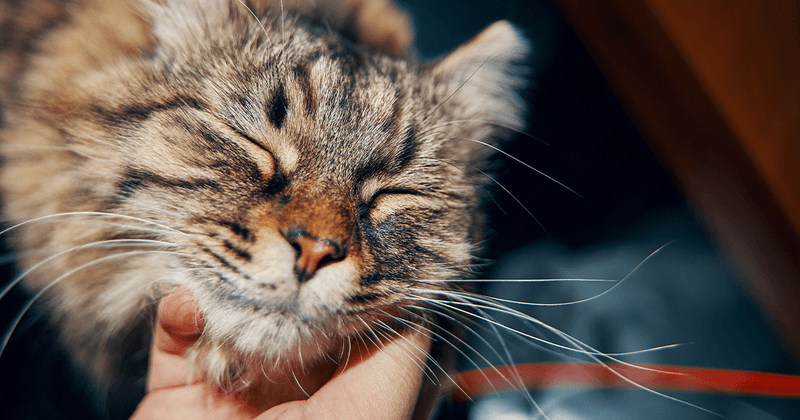📖 Table of Content:
- 1. Unwanted Belly Rubs
- 2. Loud Noises and Sudden Movements
- 3. Forcing Medication or Grooming
- 4. Irregular Feeding Times
- 5. Dirty Litter Boxes
- 6. Forced Socialization
- 7. Inconsistent Rules and Boundaries
- 1. The Perfect Scratching Post
- 2. Cozy Hiding Spots
- 3. Consistent Mealtime Rituals
- 4. Gentle Physical Affection
Cats have a reputation for being mysterious creatures with complex personalities. One minute they’re purring in your lap, the next they’re giving you the cold shoulder. Understanding what makes your feline friend tick can help strengthen your bond and create a happier home for both of you. Let’s explore what drives your cat crazy and what keeps her coming back for more.
1. Unwanted Belly Rubs
Your cat’s fluffy belly might look like the perfect petting spot, but most felines consider this area strictly off-limits. When you go for that tempting tummy, you’re actually violating a major trust boundary. Unlike dogs, cats expose their bellies as a sign of trust, not as an invitation to touch.
This vulnerable area houses vital organs, and in the wild, protecting it is essential for survival. Next time you’re tempted to give that belly a rub, try focusing on your cat’s cheeks, chin, or the base of the tail instead. These are spots most cats genuinely enjoy having scratched and will reward you with purrs rather than scratches.
2. Loud Noises and Sudden Movements
With hearing far sharper than ours, cats can be startled by sounds we barely notice. The roar of a vacuum, the buzz of a blender, or booming music often sparks their instinct to flee. Those sensitive ears can detect sounds up to 64,000 Hz (compared to our measly 20,000 Hz).
This means everyday household noises might sound like thunderous roars to your feline friend. Creating quiet zones in your home where your cat can retreat during noisy activities shows respect for their sensitive nature. Try to maintain a predictable routine with noise levels, and always move slowly around your cat to avoid startling them.
3. Forcing Medication or Grooming
No cat enjoys being wrapped in a towel while you struggle to administer medicine or trim those razor-sharp claws. The feeling of being restrained triggers immediate panic in most cats, who value their independence above all else.
Many cats associate these experiences with danger, making future attempts even more challenging. The stress hormone release can actually weaken their immune system over time. Building positive associations through treats and patience can transform these necessary evils. Try using pill pockets for medication or gradually acclimating your cat to the nail clippers with short, positive sessions rather than one marathon grooming battle.
4. Irregular Feeding Times
As creatures of habit, cats rely on consistent routines to feel secure. Disrupting their mealtime routine can trigger anxiety, sometimes showing up as destructive actions. Their internal clocks are remarkably precise – many cats can tell time within minutes when it comes to regular feeding schedules. Hunger leads to frustration, and your furniture or houseplants might pay the price.
Setting up an automatic feeder can help maintain consistency even when your schedule changes. If you must adjust feeding times, do so gradually in 15-minute increments to help your cat adapt without the stress of sudden change.
5. Dirty Litter Boxes
Cats are naturally clean animals who spend up to 50% of their waking hours grooming themselves. A dirty litter box is deeply offensive to their fastidious nature and can be compared to forcing a human to use an unflushed toilet repeatedly. Their sensitive noses detect ammonia and waste odors much more strongly than we do.
This sensory assault is why many cats will eventually refuse to use a neglected litter box, finding cleaner alternatives around your home. Daily scooping is the minimum standard for keeping your cat happy, with a complete litter change weekly. Multiple cats need multiple boxes – the general rule is one box per cat plus one extra to prevent territorial disputes.
6. Forced Socialization
Dragging your cat out from under the bed to meet your houseguests creates anxiety and resentment. Cats need to approach new people and situations on their own terms, not when we decide it’s convenient. Forced interactions teach your cat that people are threatening rather than friendly. This negative association can lead to long-term behavioral issues like aggression or extreme shyness.
Creating high perches and hiding spots throughout your home gives your cat safe observation points during social gatherings. Let visitors know to ignore your cat initially, allowing her to approach when she feels comfortable. The patient approach builds trust rather than destroying it.
7. Inconsistent Rules and Boundaries
Cats become confused and frustrated when allowed on the kitchen counter one day but scolded for it the next. Their brains are wired to recognize patterns, and inconsistency disrupts their understanding of their environment.
Mixed signals create anxiety because your cat never knows when a behavior will result in praise or punishment. This uncertainty can lead to stress-related issues like overgrooming, inappropriate elimination, or destructive behaviors. Decide on household rules and make sure everyone enforces them consistently. Use positive reinforcement rather than punishment, and provide appropriate alternatives for natural behaviors like climbing and scratching. Clear boundaries actually make cats feel more secure, not less.
1. The Perfect Scratching Post
A quality scratching post satisfies your cat’s primal urge to maintain claw health while marking territory. The stretching sensation when cats scratch releases tension in their bodies and feels incredibly satisfying to them. Cats return to homes with appropriate scratching surfaces because they fulfill both physical and psychological needs.
The act of scratching removes dead outer husks from claws and exercises important muscles in their shoulders and back. The ideal post should be tall enough for a full stretch (at least 3 feet), sturdy enough not to wobble, and covered in rough material like sisal rope. Placing it near sleeping areas increases use since cats often scratch after waking from naps.
2. Cozy Hiding Spots
Secure, enclosed spaces fulfill your cat’s instinctual need for safety. In the wild, hidden spots protect cats from predators while they rest, and this genetic programming remains strong in domestic cats. A home with plenty of hideaways reduces stress hormones in your cat’s system.
These retreats allow them to observe their environment while feeling protected, especially important in multi-pet households or homes with children. Cardboard boxes, cat caves, and even spaces under furniture become favorite retreats. Respecting these private spaces by not disturbing your cat when they’re hiding builds trust. Your recognition of their need for occasional solitude makes your home a sanctuary they’ll always return to.
3. Consistent Mealtime Rituals
Food routines tap into your cat’s hunting instincts while creating positive associations with you as the provider. The predictable nature of regular feeding times gives cats a sense of security in their environment.
Studies show that cats form strong bonds with humans who feed them at the same times daily. Your cat learns to associate your presence with the satisfaction of hunger, one of their most basic needs. Adding small rituals like a specific call or the sound of the food container being opened enhances this connection. Some cats even appreciate brief interactive play before meals, mimicking the hunt-catch-eat sequence that’s hardwired into their DNA. These reliable patterns make your home the center of their world.
4. Gentle Physical Affection
Cats have specific preferences for how they like to be touched, and respecting these boundaries creates deep trust. The right kind of petting stimulates the production of oxytocin – the bonding hormone – in both you and your cat. Most cats enjoy gentle scratches around the cheeks, chin, and base of the tail. These areas contain scent glands that, when stimulated, create a pleasurable sensation and mark you as part of their trusted circle.
Learning your individual cat’s preference for affection duration is equally important. Some cats enjoy brief sessions while others seek extended contact. Paying attention to subtle cues like tail flicking or ear position helps you stop before petting becomes irritating, strengthening your bond through respect.
